Bones Oracle
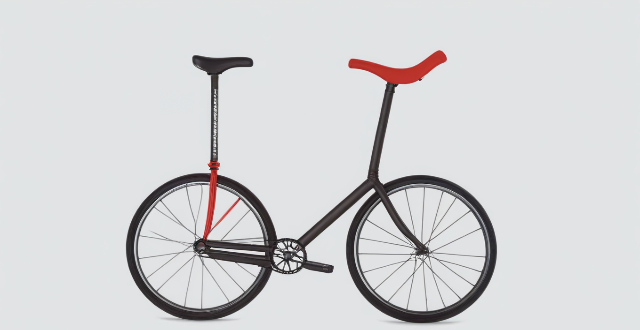
Can exercise prevent osteoporosis ?
Exercise plays a crucial role in maintaining healthy bones by increasing bone density and strength. Effective exercises for preventing osteoporosis include weight-bearing exercises, strength training, balance exercises, high-impact exercises, and flexibility exercises. Incorporating these exercises into your routine can help reduce the risk of osteoporosis and maintain strong bones throughout your life.
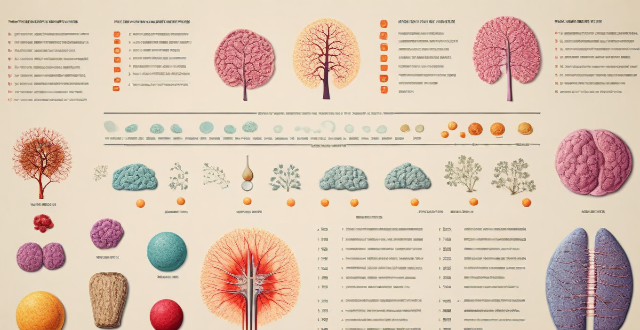
How does exercise contribute to bone health ?
Exercise contributes to bone health by increasing bone density, improving balance and coordination, strengthening muscles, improving posture, reducing inflammation, and enhancing cardiovascular health. This reduces the risk of osteoporosis, fractures, back pain, and other health issues.

Can resistance training help improve bone density in older adults ?
Resistance training has been shown to have a positive impact on improving bone density in older adults. This form of exercise strengthens the muscles and bones, reducing the risk of osteoporosis and fractures. To start resistance training, it is important to consult with a doctor, begin slowly, focus on compound movements, incorporate weight-bearing exercises, and seek professional guidance for safety and effectiveness. Consistency is key in achieving optimal results.

Is weight-bearing exercise really necessary for bone health ?
Weight-bearing exercises are often recommended for maintaining bone health, but is it really necessary? Let's explore this topic in detail. Weight-bearing exercises include any activity that requires you to carry your own body weight, such as walking, jogging, dancing, climbing stairs, and weightlifting. These exercises can help strengthen bones and muscles, improve balance and coordination, and reduce the risk of falls. Maintaining healthy bones is crucial for overall health and well-being. Strong bones provide support and protection for your body, allowing you to move with ease and perform daily activities without pain or discomfort. Additionally, having strong bones can help prevent fractures and other injuries. Weight-bearing exercises have numerous benefits on bone health, including stimulating bone growth, improving bone density, reducing the risk of falls and injuries, and promoting overall health and well-being. However, there are some alternatives to weight-bearing exercise that may be beneficial for people who cannot engage in these types of activities. These include resistance training, yoga or Pilates, and swimming. In conclusion, weight-bearing exercises are highly recommended for maintaining bone health due to their numerous benefits on bone growth, density, and overall health and well-being. However, there are alternative exercises that may be beneficial for people who cannot engage in weight-bearing activities. It's always best to consult with a healthcare professional before starting any new exercise program.

What types of exercises are best for improving bone density ?
Improving bone density is crucial for maintaining overall health and preventing conditions such as osteoporosis. Engaging in specific types of exercises can significantly enhance bone density, making them an essential component of a healthy lifestyle. Here are some of the best exercises for improving bone density: 1. **Weight-Bearing Exercises**: These activities put stress on the bones, which stimulates them to grow stronger. Examples include walking, jogging, stair climbing, and strength training. 2. **High-Impact Exercises**: These exercises involve jumping or quick, forceful movements that create a significant impact on the bones. Examples include jumping jacks, burpees, box jumps, and plyometrics. 3. **Resistance Training**: This type of training involves using external resistance, such as weights or resistance machines, to challenge the muscles and bones. Key exercises include squats, deadlifts, bench press, and rows. 4. **Isometric Exercises**: While not as directly beneficial for bone density as the previous categories, isometric exercises can still play a role in maintaining and improving overall strength, which contributes to better bone health. Examples include planks, wall sits, and push-up holds. Incorporating a combination of these exercises into your routine can significantly improve bone density over time. It's essential to consult with a healthcare professional before starting any new exercise program, especially if you have pre-existing health conditions or concerns about your bone health.
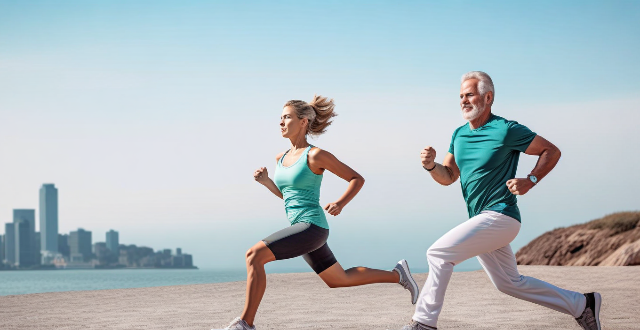
How often should I exercise to maintain good bone health ?
Exercise is crucial for maintaining good bone health, but the frequency and intensity required vary depending on individual factors. Regular exercise strengthens bones, improves balance, and reduces the risk of falls and fractures. The recommended exercise guidelines for adults are at least 150 minutes of moderate-intensity aerobic exercise per week and two or more days of strength training per week. For older adults, it's important to consult with a healthcare professional before starting any new exercise program. Other factors that impact bone health include diet, smoking, and overall health status.

How can women maintain bone health as they age ?
Maintaining bone health is crucial for women as they age. Here are some tips to help them keep their bones strong and healthy: 1. Get Enough Calcium and Vitamin D: Women should aim to get at least 1,200 milligrams of calcium per day through food sources like dairy products, leafy greens, and fortified foods. Vitamin D helps the body absorb calcium, and it's recommended that women get at least 600-800 IU of vitamin D daily from sunlight, food, or supplements. 2. Engage in Weight-Bearing Exercises: Weight-bearing exercises like walking, jogging, dancing, or lifting weights can help strengthen bones by putting stress on them. This stress signals the body to build more bone, making them stronger over time. Aim for at least 30 minutes of weight-bearing exercise most days of the week. 3. Practice Good Posture and Body Mechanics: Good posture and body mechanics can help prevent fractures by reducing the risk of falls. Stand tall with your shoulders back and your head held high. Use proper body mechanics when lifting heavy objects, bending, or reaching overhead. 4. Quit Smoking and Limit Alcohol Intake: Smoking has been linked to decreased bone density and an increased risk of fractures. If you smoke, consider quitting to improve your bone health. While moderate alcohol consumption may not harm bones, heavy drinking can lead to bone loss. Stick to no more than one drink per day for women. 5. Talk to Your Doctor About Bone Health: As women age, it's important to discuss bone health with a healthcare provider. They may recommend a bone density test to assess your risk of osteoporosis and suggest lifestyle changes or medications if needed. If you have a family history of osteoporosis or other risk factors, your doctor may recommend starting bone-building medications earlier rather than waiting until menopause or later life stages.

At what age should I start focusing on bone-strengthening exercises ?
Maintaining bone health is crucial at every stage of life. Ideally, it's never too early to start thinking about bone-strengthening exercises. For children and adolescents, encourage physical activities that promote bone health. For adults, continue regular exercise and maintain a balanced diet. After 50, focus on resistance training, weight-bearing exercises, and balance training. Starting young with general physical activity and incorporating specific exercises as you age is essential for maintaining bone density and preventing conditions like osteoporosis.
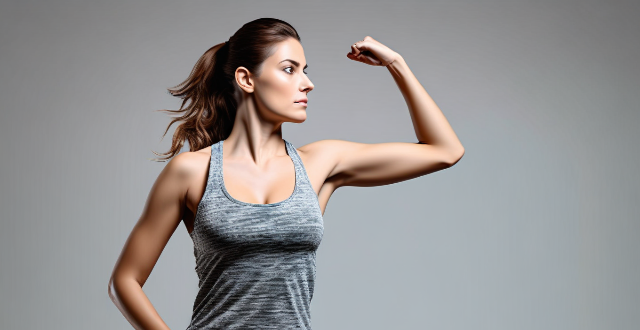
Is it possible to overdo bone-strengthening exercises ?
Bone-strengthening exercises are crucial for maintaining a healthy lifestyle, but it is possible to overdo them. Overdoing these exercises can lead to stress fractures and other injuries. To avoid this, it is important to start with low-impact activities, increase workout intensity gradually, listen to your body, get enough sleep and eat a balanced diet. Consulting with a healthcare provider about your exercise routine can also help maintain strong bones without risking injury.

How does exercise affect bone remodeling ?
Exercise is crucial for maintaining bone health by stimulating bone remodeling, a continuous process of breaking down and rebuilding bones. This process is essential for maintaining bone density and strength, preventing osteoporosis, and other bone-related diseases. Regular exercise increases the activity of osteoblasts and reduces the activity of osteoclasts, leading to improved bone density and strength. Weight-bearing exercises, resistance training, balance exercises, and high-intensity interval training are effective ways to maintain bone health.

How can women ensure they are getting enough calcium in their diet ?
Calcium is crucial for women's health, especially for maintaining strong bones and teeth. Women can ensure they are getting enough calcium by knowing their requirements, including calcium-rich foods in their diet, considering supplements if needed, and maintaining a healthy lifestyle with regular exercise and limited alcohol consumption. It's important to consult with a healthcare professional for personalized advice.

What prenatal vitamins are recommended for women trying to conceive ?
Prenatal vitamins are crucial for women trying to conceive, as they provide the necessary nutrients for a healthy pregnancy and support the development of a growing fetus. Some recommended prenatal vitamins include folic acid, iron, calcium, vitamin D, and multivitamins with folic acid. By ensuring adequate intake of these essential nutrients, women can increase their chances of having a healthy pregnancy and a healthy baby.

Can people with osteoporosis still do exercise safely ?
Osteoporosis is a condition characterized by low bone mass and deterioration of bone tissue, leading to brittle bones that are prone to fractures. It is a common concern among older adults, especially women. While exercise is generally recommended for maintaining overall health, it is important to consider the safety of physical activity for individuals with osteoporosis. In this article, we will explore whether people with osteoporosis can still do exercise safely and what precautions should be taken. Is Exercise Safe for People with Osteoporosis? Benefits of Exercise for Osteoporosis: - Improved Bone Density: Regular weight-bearing exercises can help improve bone density in individuals with osteoporosis. - Increased Strength and Balance: Resistance training and balance exercises can enhance muscle strength and reduce the risk of falls. - Better Quality of Life: Engaging in physical activities can improve mood, reduce pain, and enhance overall well-being. Risks Associated with Exercise for Osteoporosis: - Fracture Risk: High-impact activities or excessive force during exercise may increase the risk of fractures in people with osteoporosis. - Joint Stress: Some exercises may put excessive stress on joints, potentially leading to joint pain or damage. Safe Exercises for People with Osteoporosis: Weight-Bearing Exercises: - Walking: A low-impact activity that can help maintain bone density. - Dancing: A fun way to engage in weight-bearing exercise while also improving balance. Resistance Training: - Light Weight Lifting: Using light weights or resistance bands can strengthen muscles without putting too much strain on bones. - Bodyweight Exercises: Squats, lunges, and step-ups can be modified to suit individual abilities and provide resistance training benefits. Flexibility and Balance Exercises: - Tai Chi: A gentle form of exercise that focuses on slow, flowing movements to improve balance and flexibility. - Yoga: Certain yoga poses can help enhance flexibility, balance, and strength, but it is essential to avoid high-impact or bending poses that may increase fracture risk. Precautions to Take During Exercise: 1. Consult with a Healthcare Professional: Before starting any exercise program, it is crucial to consult with a healthcare professional who can assess your individual needs and risks. 2. Start Slowly: Begin with low-intensity exercises and gradually increase the duration and intensity as your body adapts. 3. Use Proper Technique: Ensure proper alignment and technique during exercises to minimize the risk of injury. 4. Wear Appropriate Footwear: Choose shoes with good support and cushioning to reduce the impact on joints and bones. 5. Avoid High-Impact Activities: Steer clear of activities like jumping or running that may increase the risk of fractures. 6. Listen to Your Body: If you experience pain or discomfort during exercise, stop immediately and seek advice from a healthcare professional. 7. Incorporate Rest Days: Allow your body time to recover between exercise sessions by including rest days in your routine.

How does a balanced diet impact women's bone health ?
Balanced diet is crucial for women's bone health, including preventing osteoporosis. Key nutrients are calcium, vitamin D, protein, and phosphorus. Fruits and vegetables also support overall well-being.
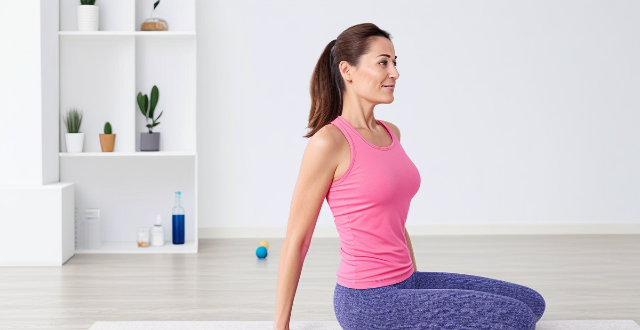
What exercises are beneficial for women's health ?
Regular physical activity is crucial for women's health, preventing chronic diseases, improving mental health, and boosting self-esteem. Aerobic exercises like running, swimming, and cycling are great for cardiovascular health and weight management. Strength training exercises such as weightlifting, resistance bands, and bodyweight exercises can improve bone density and reduce the risk of osteoporosis. Yoga helps to improve flexibility, reduce stress, and enhance mental clarity, while Pilates focuses on core strength, flexibility, and balance. Incorporating these exercises into a fitness routine can lead to improved cardiovascular health, stronger bones and muscles, reduced stress levels, and enhanced overall well-being.

What are some common nutrient deficiencies in women and how can they be addressed ?
The text lists common nutrient deficiencies in women, including iron, calcium, vitamin D, folate, vitamin B12, magnesium, and iodine. For each deficiency, it provides symptoms and solutions such as consuming specific foods or taking supplements.

How dangerous is BMX biking compared to other extreme sports ?
BMX biking is an extreme sport that involves riding a bicycle on various terrains and performing stunts. While it can be thrilling and exciting, it also comes with certain risks such as head injuries, broken bones and fractures, and road accidents. Compared to other extreme sports like base jumping, rock climbing, and skydiving, BMX biking has its own unique set of dangers. To stay safe while enjoying the sport, it's important to wear proper safety gear, learn proper technique, choose safe locations, stay alert, and maintain your bike.

What are some common causes of a broken garbage disposal and how can I fix it ?
Garbage disposals can break down due to various reasons, including overloading the disposal with too much food waste, putting hard objects such as bones or glass into the disposal, running the disposal without enough water, and putting grease or oil into the disposal. To fix a broken garbage disposal, unplug it from the power source, check for obstructions, check the blades and motor, and if necessary, call a professional plumber.

What are the essential nutrients for women's health ?
Essential Nutrients for Women's Health Women's health requires attention to various aspects of nutrition, including essential nutrients such as calcium, iron, folic acid, vitamin D, omega-3 fatty acids, vitamin B12, fiber, vitamin C, zinc, magnesium, iodine, vitamin E, vitamin A, copper, choline, selenium, and potassium. These nutrients are crucial for maintaining good health, building and maintaining strong bones and teeth, making hemoglobin, preventing neural tube defects in developing babies, supporting bone and immune system health, supporting heart health and brain function, aiding digestion, helping form collagen in skin, important for immune system function, involved in more than 300 bodily processes, essential for thyroid function, acts as an antioxidant in the body, important for vision, helps the body form red blood cells, important for brain development and health, and acts as an antioxidant in the body. A balanced diet rich in these essential nutrients is crucial for women's health, and it's important to consult with a healthcare provider or a registered dietitian to ensure individual nutritional needs are met.

What is the impact of competitive sports on children's physical development ?
Competitive sports can have both positive and negative impacts on children's physical development, including improved cardiovascular health, muscle strength, flexibility, coordination, healthy weight management, bone health, overuse injuries, performance pressure, and safety concerns. It is important to monitor their involvement carefully to avoid potential negative consequences and ensure they reap the rewards without suffering from the drawbacks of competitive sports.
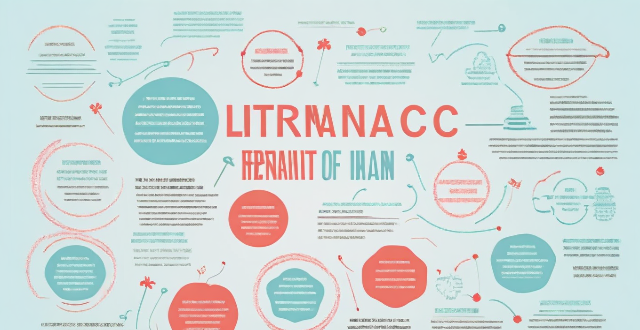
What is the relationship between physical literacy and child development ?
Physical literacy is crucial for child development, enhancing cognitive, social, emotional, and physical dimensions of learning. It improves memory, attention, problem-solving skills, communication, cooperation, empathy, self-esteem, resilience, muscle strength, cardiovascular health, and reduces the risk of chronic diseases. Incorporating regular physical activity into children's daily routines promotes their overall growth and well-being.
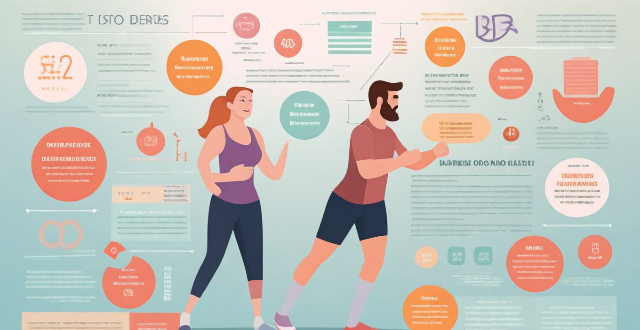
What are the benefits of strength training for overall health ?
Strength training offers numerous benefits for overall health, includingStrength training offers numerous benefits for overall health, includingurance, increased bone density Incorporating strength training into your fitness routine can help you achieve a healthier, stronger, and happier life.